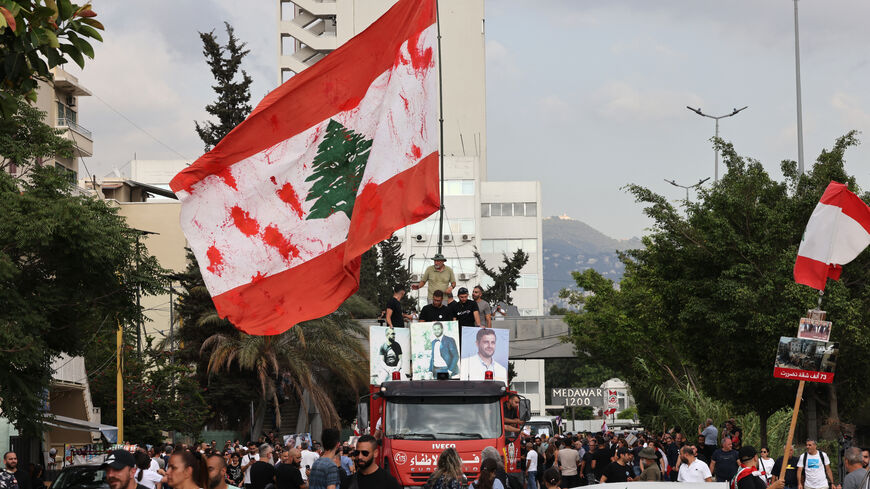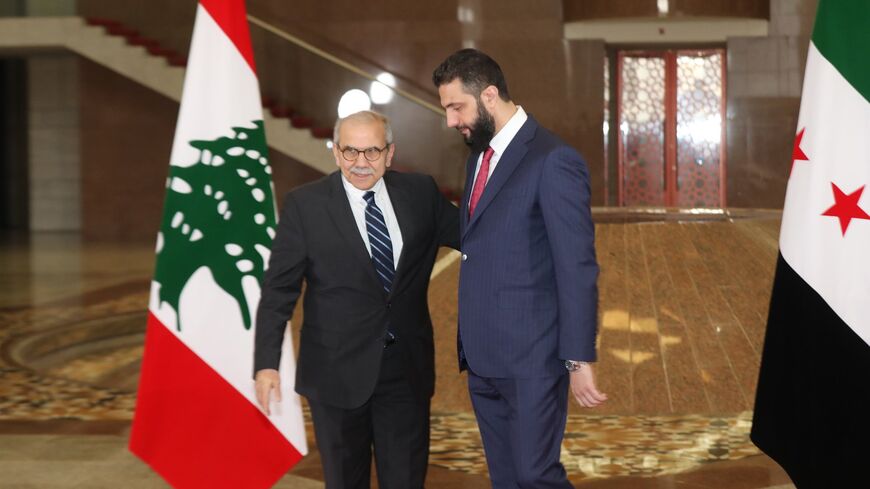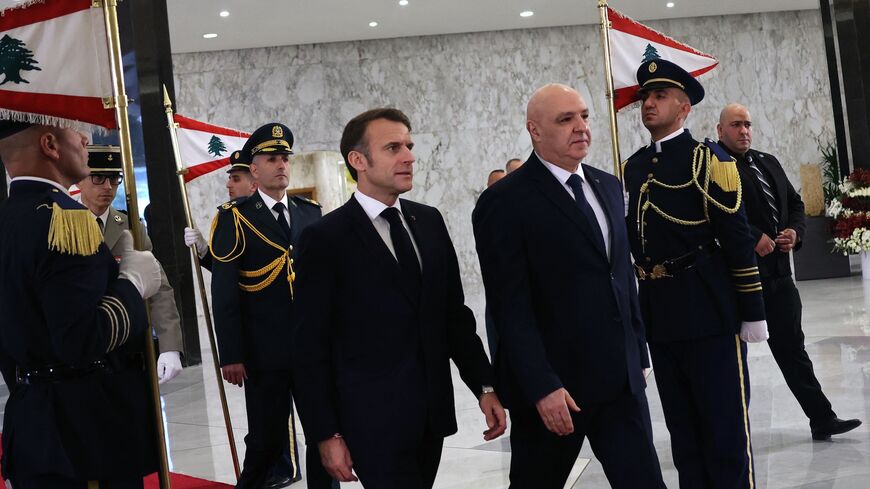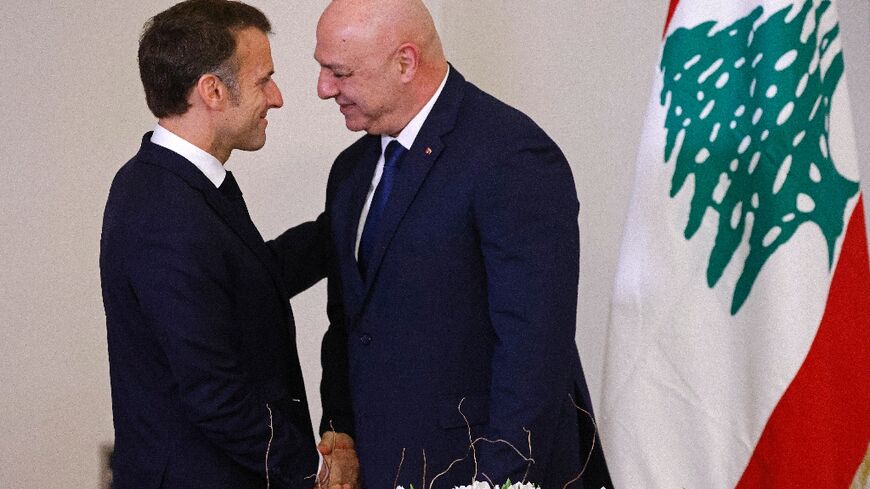On first visit to Paris, Lebanon's Salam secures $88M reconstruction pledge
During discussions with Lebanese Prime Minister Nawaf Salam, President Emmanuel Macron emphasized that Beirut must implement economic reforms before an aid conference can be organized to support Lebanon's reconstruction.
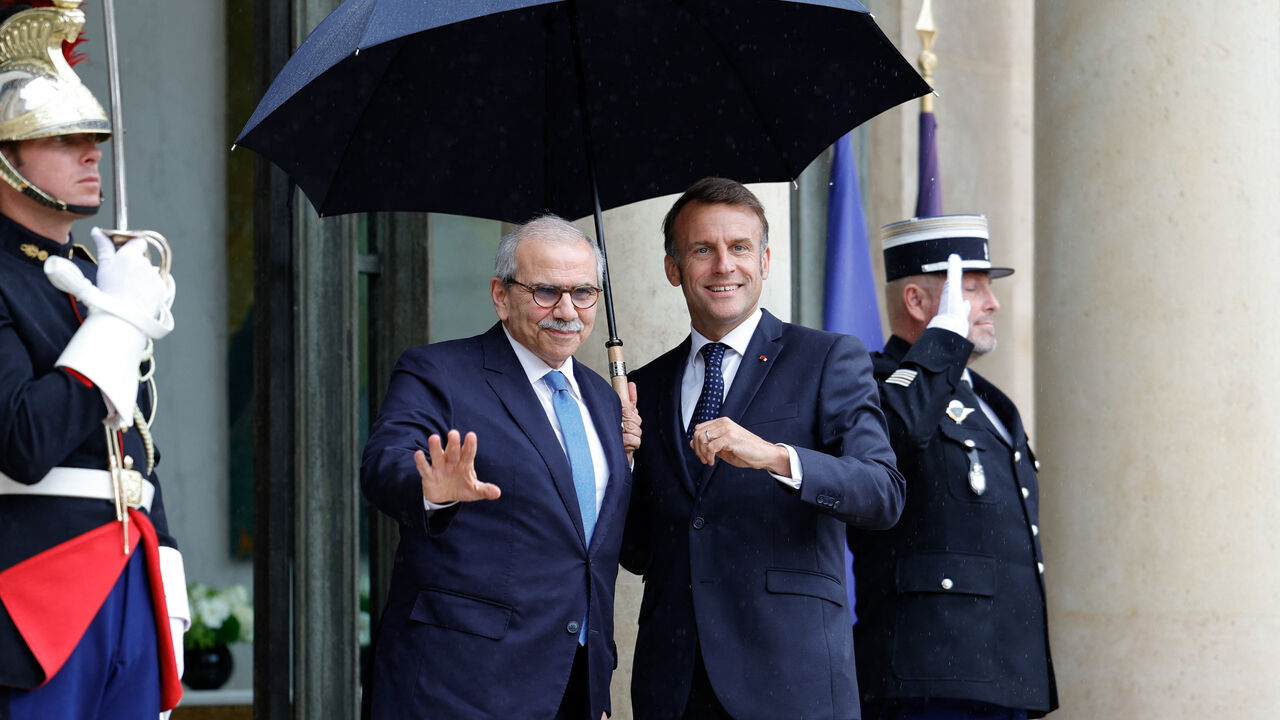
BEIRUT — France announced on Thursday a 75 million euros (around $88 million) contribution to a World Bank project aimed at supporting Lebanon’s construction, eight months after the war between Israel and Hezbollah ended in November.
French President Emmanuel Macron made the announcement during Lebanese Prime Minister Nawaf Salam’s official visit to Paris— his first since taking office in January.
“The President of the Republic expressed his support for the reconstruction of areas destroyed by the war, which should begin as soon as possible. He assured the Prime Minister that France would contribute 75 million euros to the World Bank's Lebanese Emergency Assistance Project,” an Elysee statement read.
What happened: Salam arrived in Paris on Thursday for a one-day visit and met with President Macron. According to a Lebanese government statement, Salam — a former judge at the International Court of Justice — briefed the French president on Lebanon’s current challenges and reaffirmed his government’s commitment to implementing reforms and asserting state authority across all Lebanese territory.
Macron reiterated France’s support for Lebanon in its recovery from both the war and its ongoing economic crisis. He also urged Lebanon’s parliament to pass banking reform legislation to unlock vital international aid and to pave the way for a donor conference.
“It is on this basis that France could organize a dedicated international conference in Paris, in support of a new program with the International Monetary Fund,” the Elysee said in its statement.
أشكر فرنسا على دعمها المتواصل للبنان وأمنه وسيادته وازدهاره. أعود إلى بيروت مطمئنًا نتيجة التزام الرئيس ماكرون بمساعدة لبنان والتجديد لقوة اليونيفيل، وتعزيز علاقاتنا الثنائية لا سيما في مجالات الأمن والاقتصاد والتعليم والثقافة. @Elysee @EmmanuelMacron pic.twitter.com/bfupWrQ4lb
— Nawaf Salam نواف سلام (@nawafsalam) July 24, 2025
Macron also emphasized France’s backing of the full implementation of the ceasefire agreement brokered by Paris and Washington last November, which calls for a complete Israeli withdrawal from Lebanese territory and an end to Israeli attacks.
“France would continue to contribute to strengthening the Lebanese army, which was to ensure the state's monopoly on weapons throughout the country,” the president said in an apparent reference to international demands for Lebanon to disarm the Iran-backed Hezbollah group.
The two leaders also agreed on the importance of renewing the mandate of the United Nations Interim Force in Lebanon, which is set to expire in August. UNIFIL, comprised of approximately 10,500 peacekeepers, has been patrolling the Israeli-Lebanese border since its establishment in 1978 following Israel’s brief invasion of Lebanon.
Salam’s visit coincided with a trip to Paris by US envoy to Syria Tom Barrack, who was reportedly in the French capital to discuss Lebanese proposals on a US road map for Hezbollah’s disarmament with Israeli officials, according to Lebanese newspaper al-Binaa. Earlier in the week, Barrack was in Beirut pressing Lebanese officials for a timeline on Hezbollah’s disarmament.
Background: France has long maintained close ties with Lebanon, a former French protectorate that gained independence in 1943. The two countries share deep historical, cultural and political connections.
Macron was among the first foreign leaders to visit Beirut following the election of Lebanese President Joseph Aoun in January, ending more than two years of presidential vacancy. During a Jan. 17 meeting with Aoun, Macron announced that France would soon host a donor conference to aid Lebanon’s reconstruction, though this now appears conditional on the enactment of key economic reforms.
Lebanon suffered extensive damage during the war, which lasted from October 2023 to November 2024. According to a World Bank report published in March, the country’s recovery needs are estimated at $11 billion. The housing sector alone accounted for $4.6 billion — 67% of the total damages — mainly concentrated in southern Lebanon and the Beirut suburbs, areas largely under Hezbollah’s influence.
On June 25, Lebanon secured a $250 million World Bank loan to support reconstruction efforts.
The war struck while Lebanon was already reeling from an economic and financial collapse triggered by years of corruption and mismanagement, beginning in October 2019.
Know more: During Thursday’s meeting, Macron also addressed security along the Lebanese-Syrian border and expressed French support for cooperation.
“The President of the Republic also reiterated France's willingness to support cooperation between Lebanon and Syria in securing their shared border and, when the time comes, demarcating this border through the expertise and documents France had in its archives,” the Elysee noted in the statement.
Since the fall of Syrian President Bashar al-Assad in a rebel offensive last December, tensions have flared along the porous 330-kilometer (205-mile) border between Lebanon and Syria. The boundary remains undefined in several sections due to years of conflict. Clashes in February and March between Syrian security forces and members of Lebanese clans involved in smuggling have further heightened instability.
Meanwhile, the Lebanese army has stepped up operations targeting suspected Syrian militants and arms smugglers. On Thursday, the army announced that its Intelligence Directorate arrested three individuals accused of forming an ISIS-affiliated cell and plotting attacks on the military under instructions from abroad.
The arrests were part of broader counterterrorism efforts, though the army did not disclose the specific locations of the raids.
On July 15, the army reported detaining 144 Syrians residing illegally in Lebanon. In earlier operations in March, another 56 Syrians who entered the country illegally were arrested, with authorities seizing weapons, drugs and military equipment.

